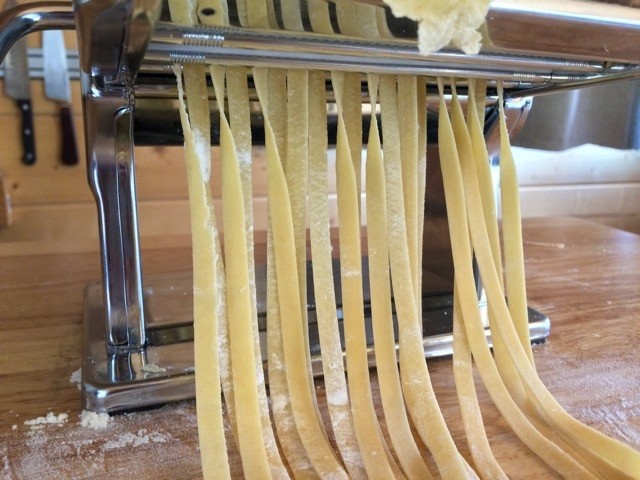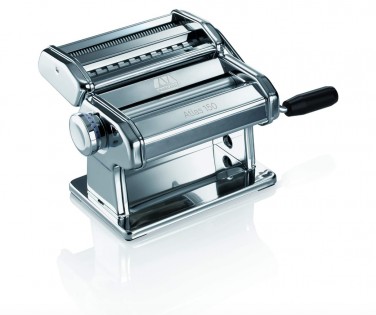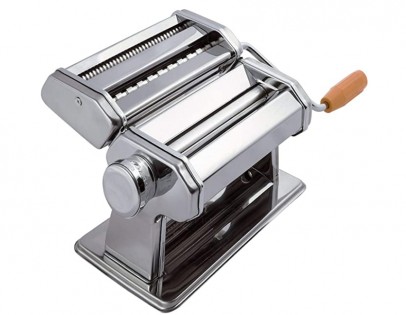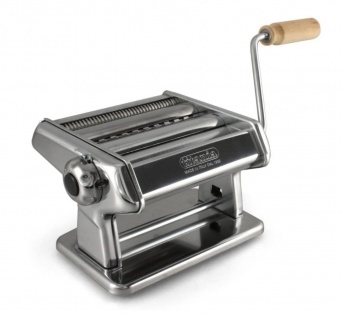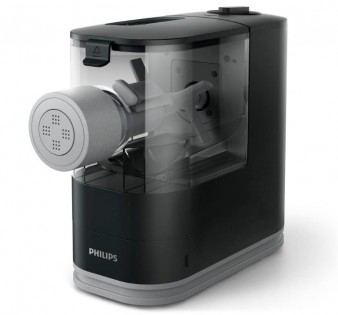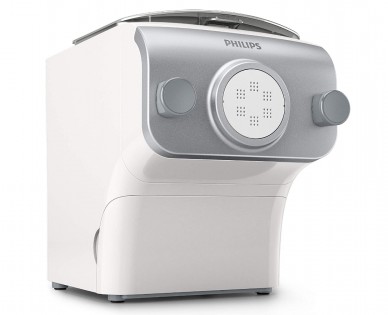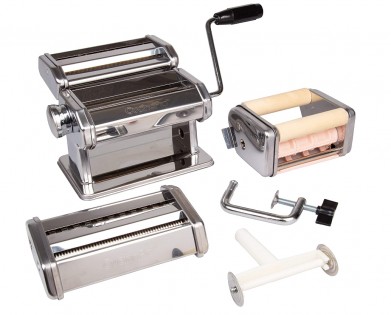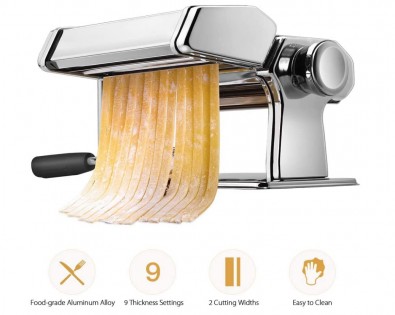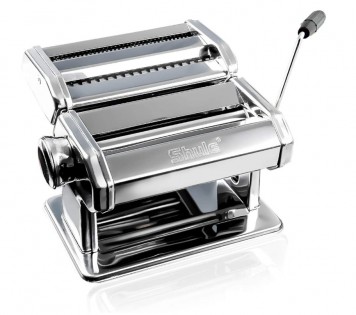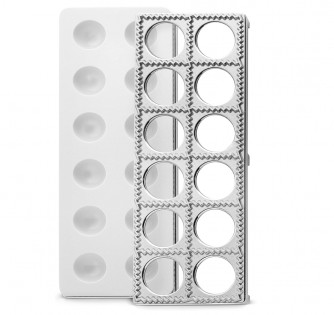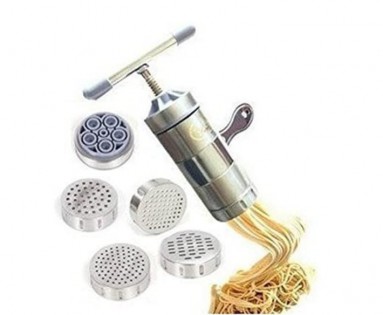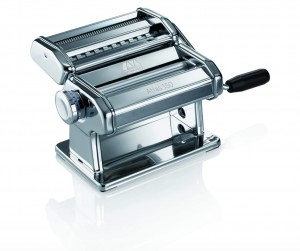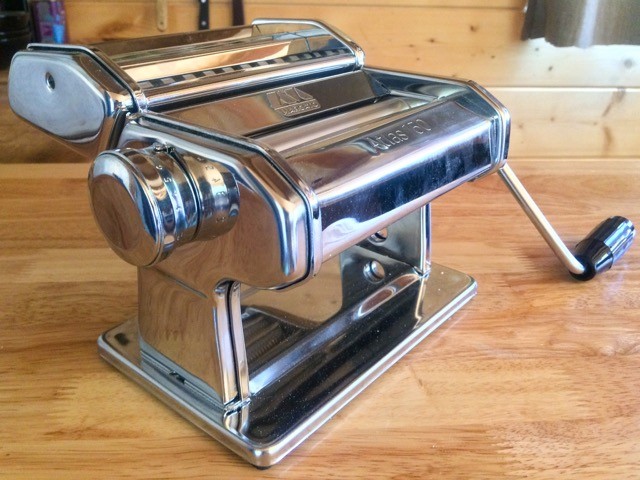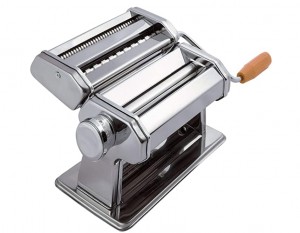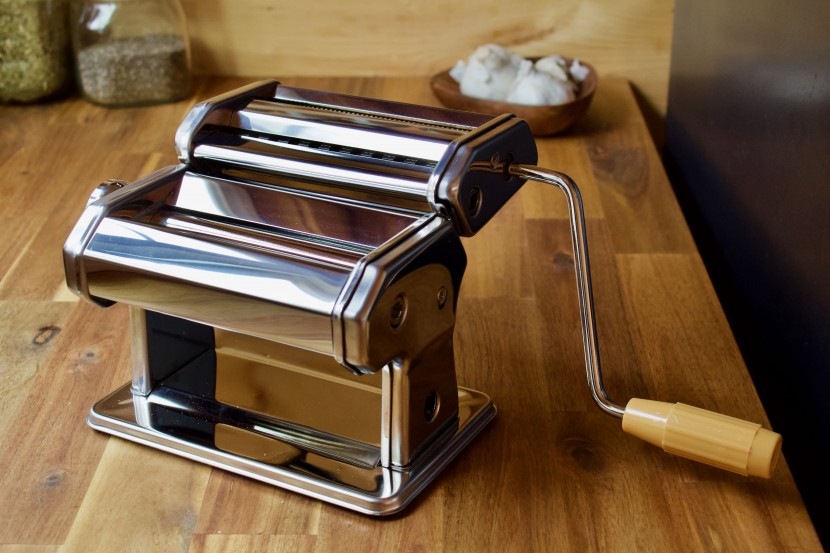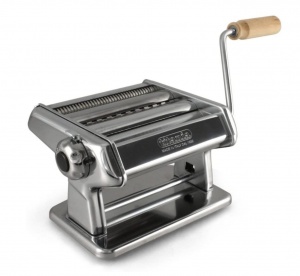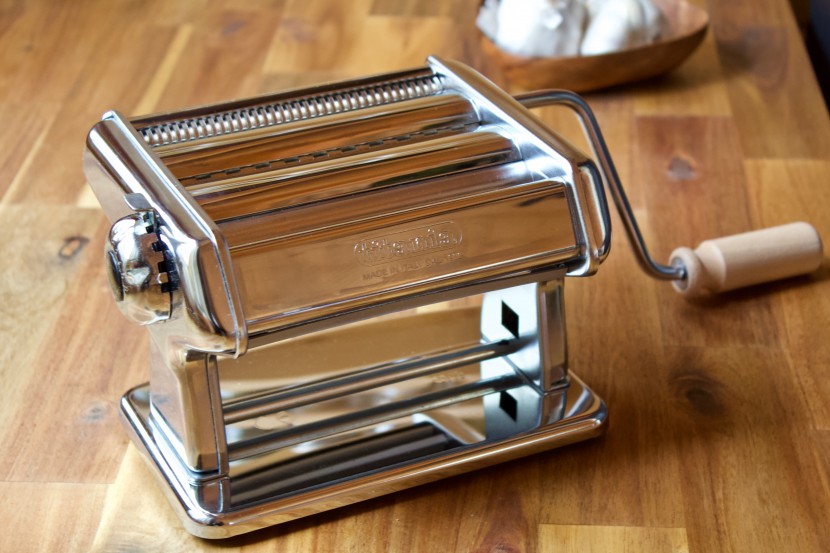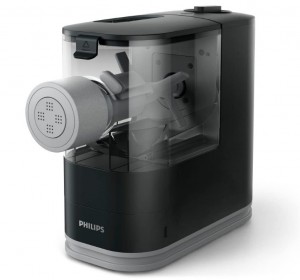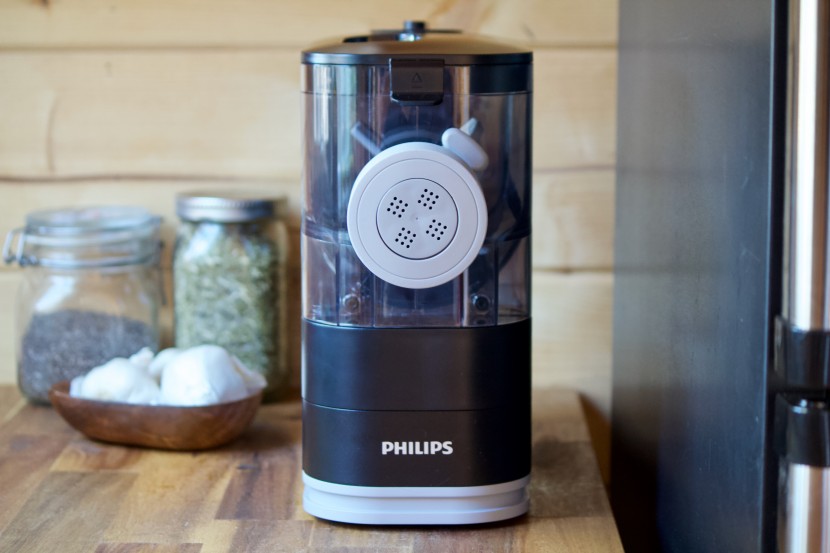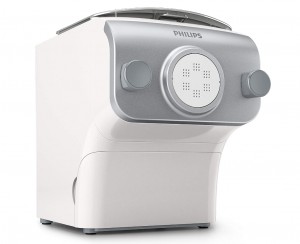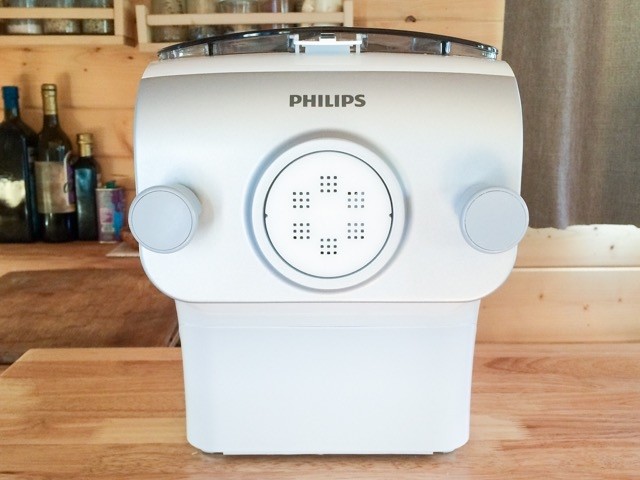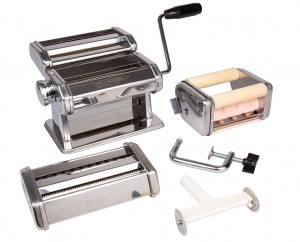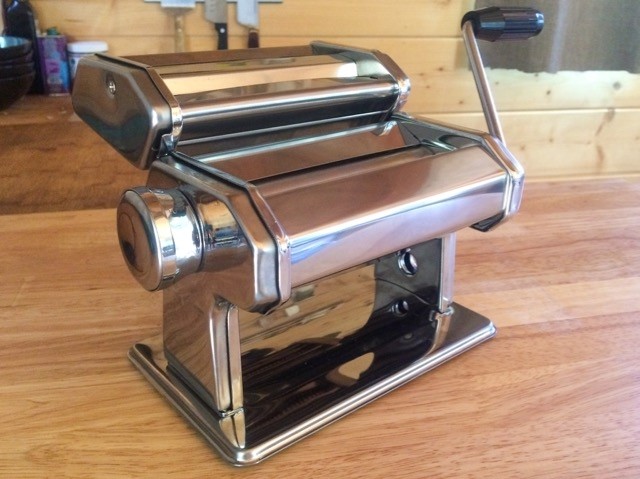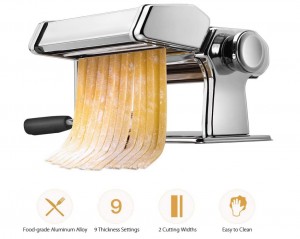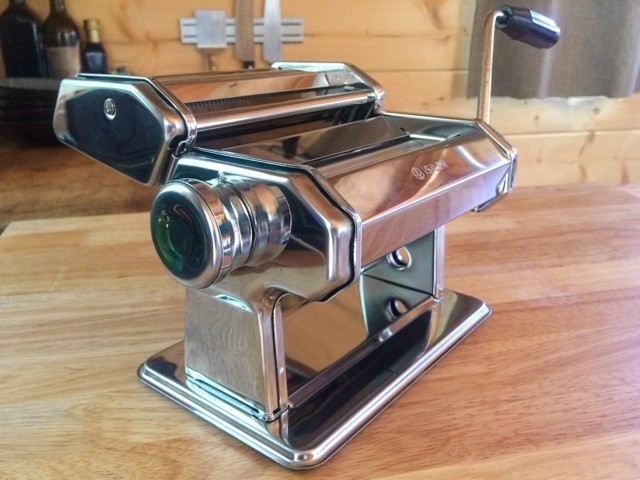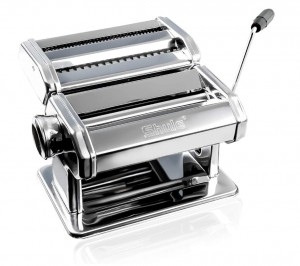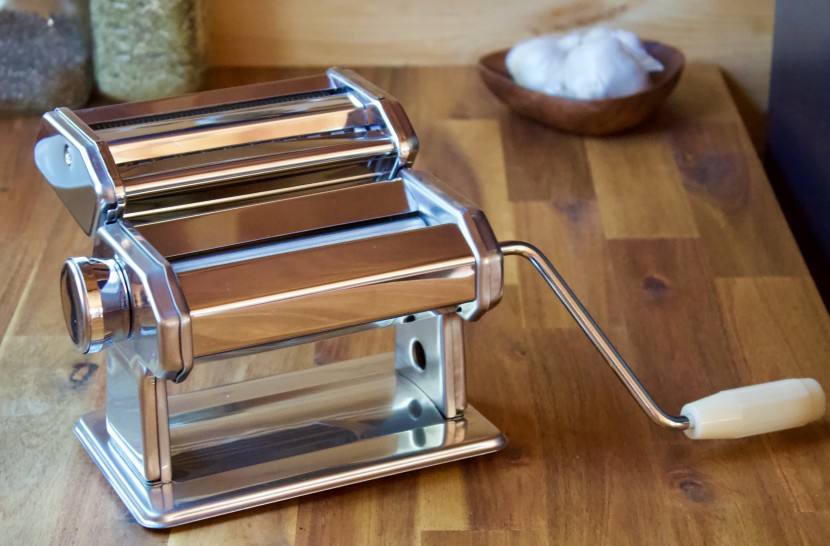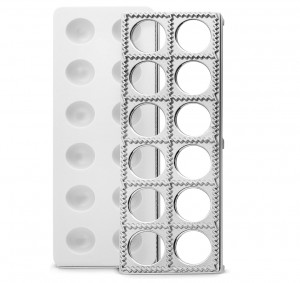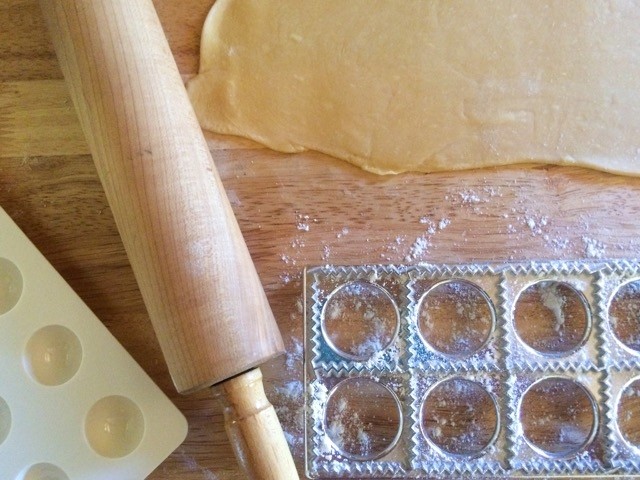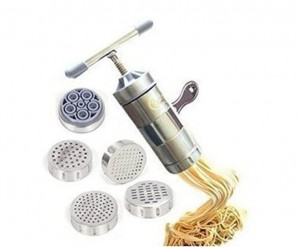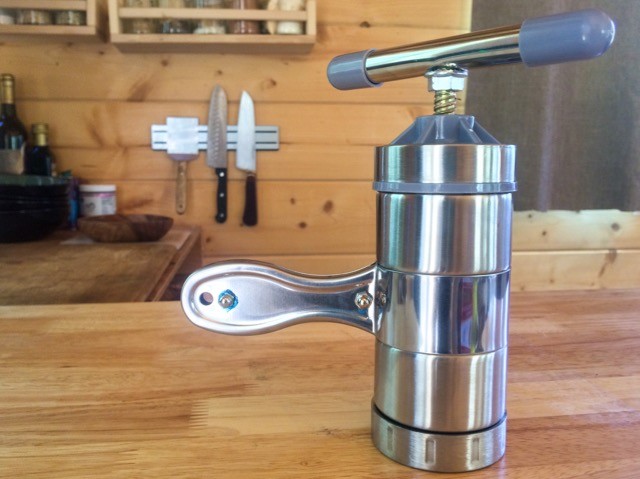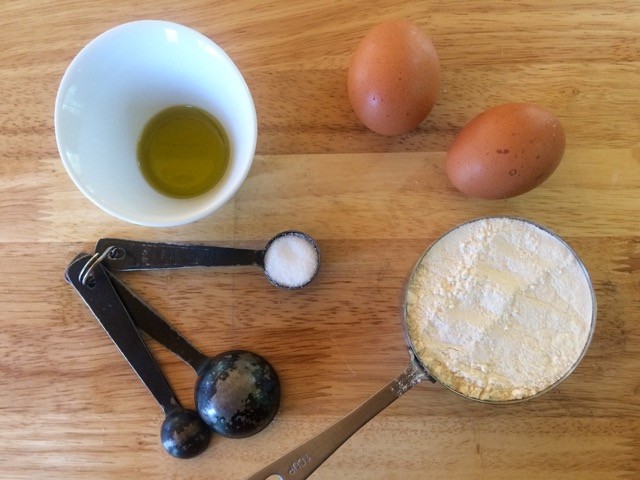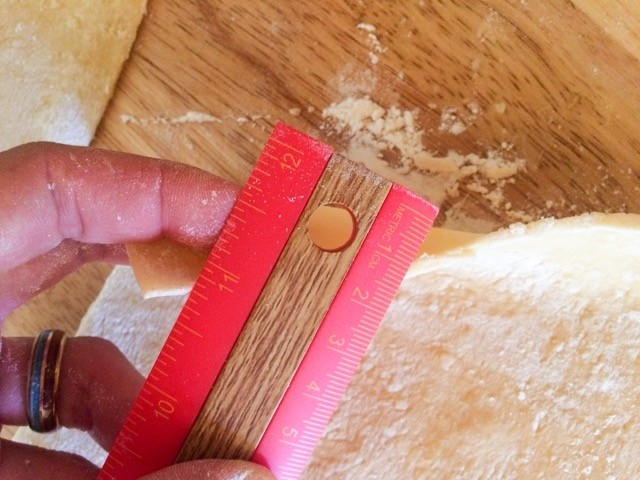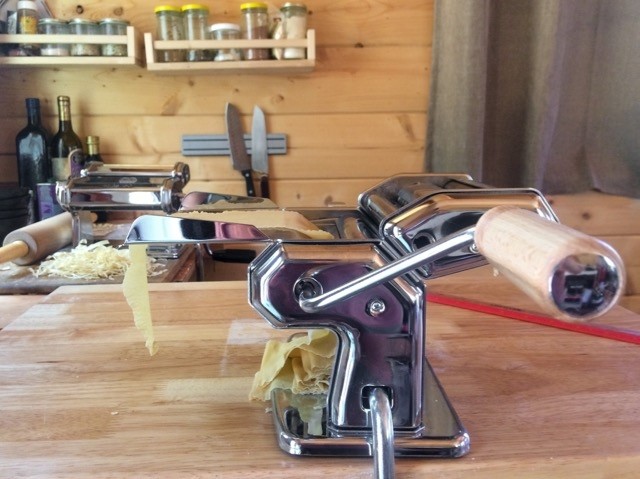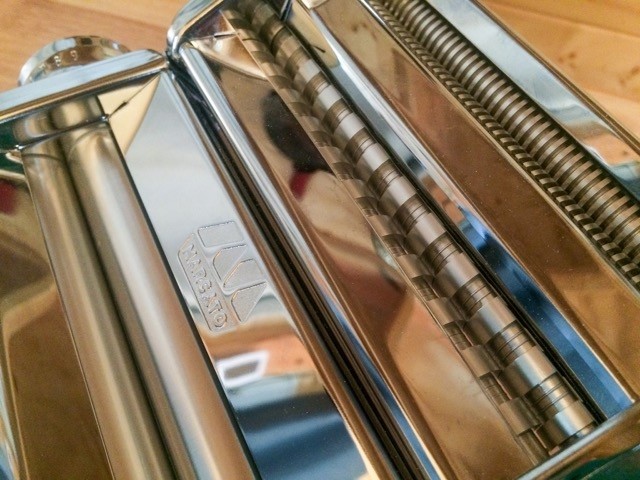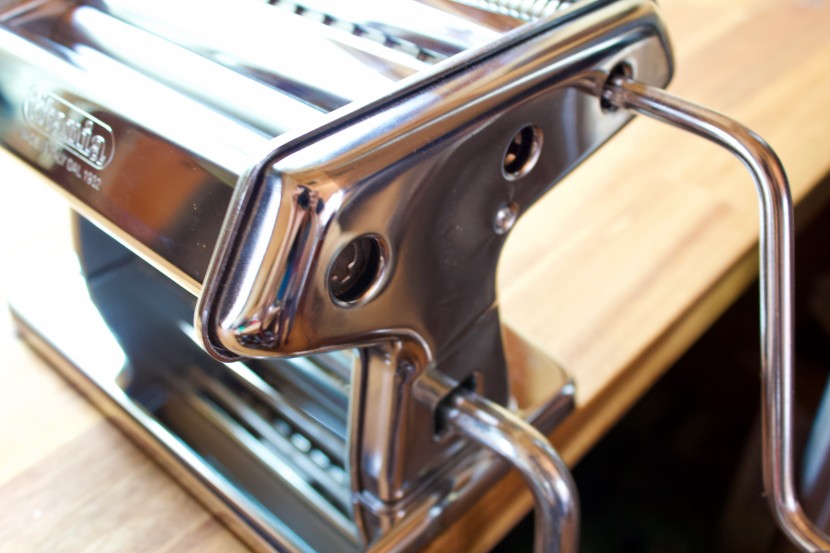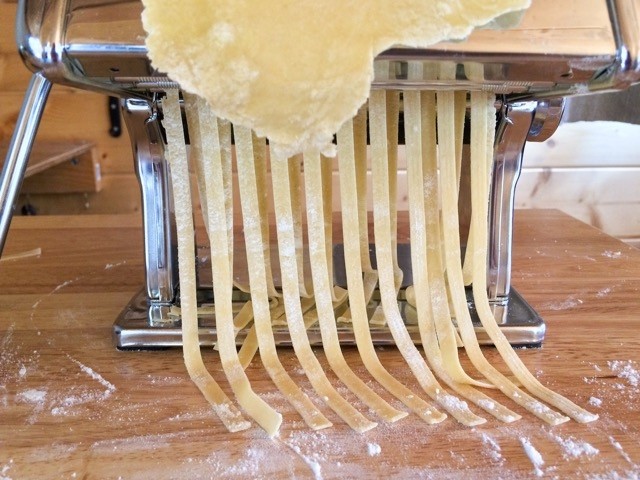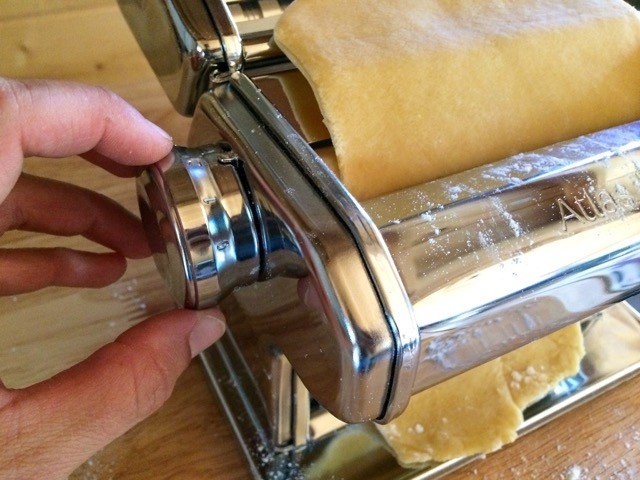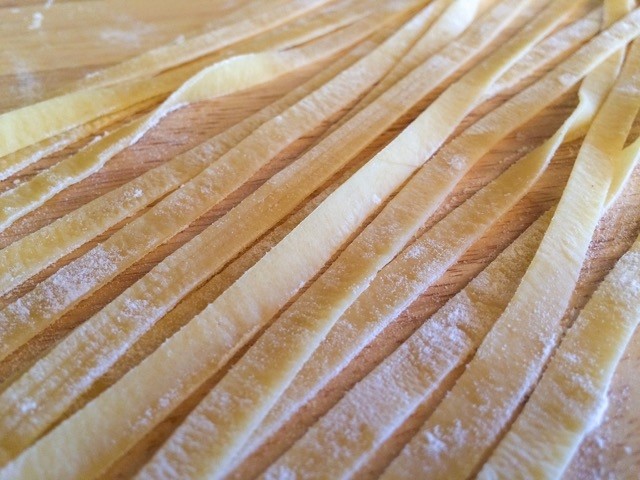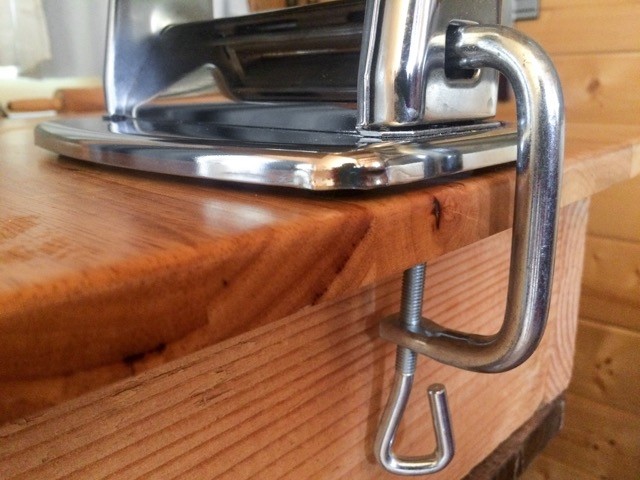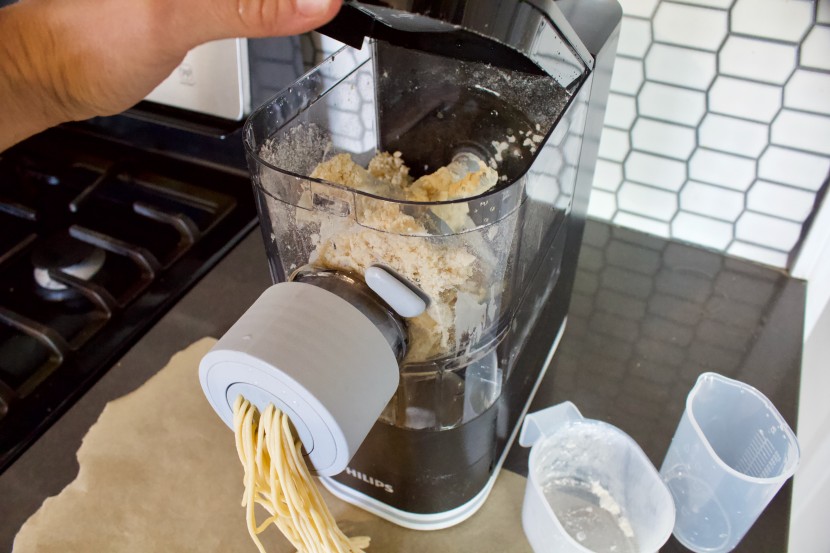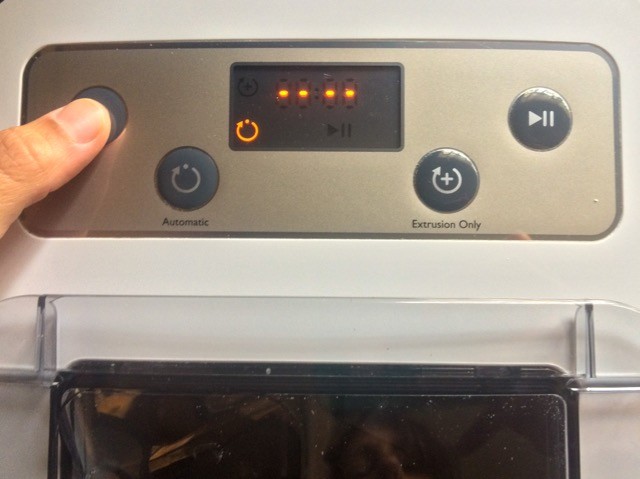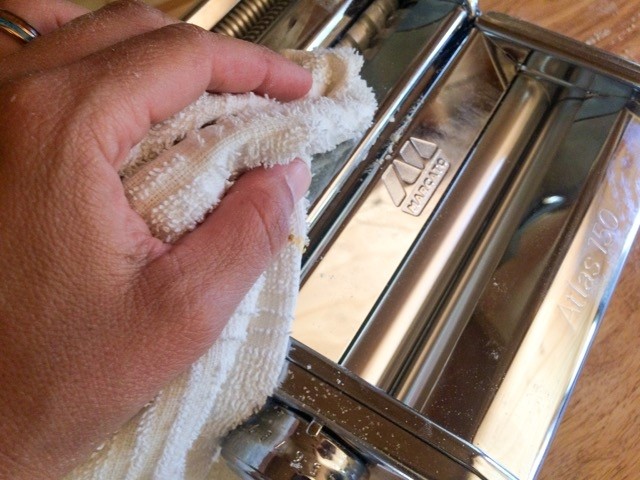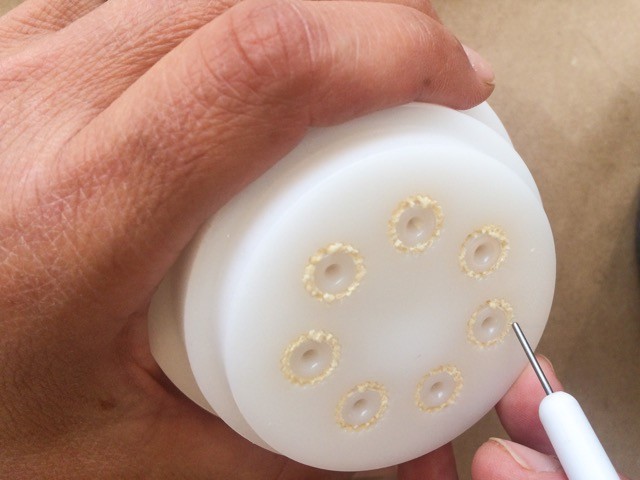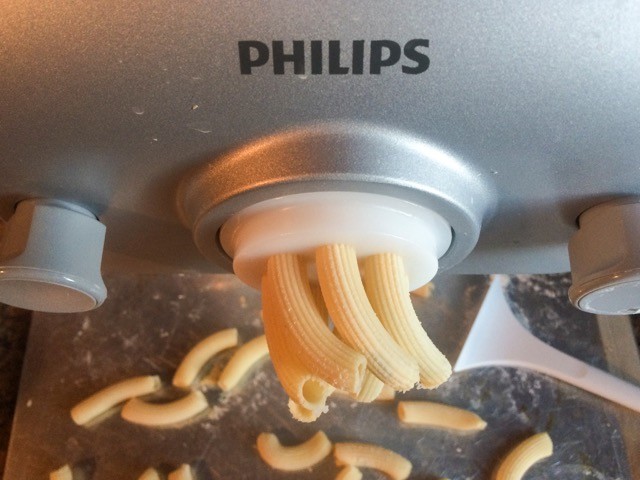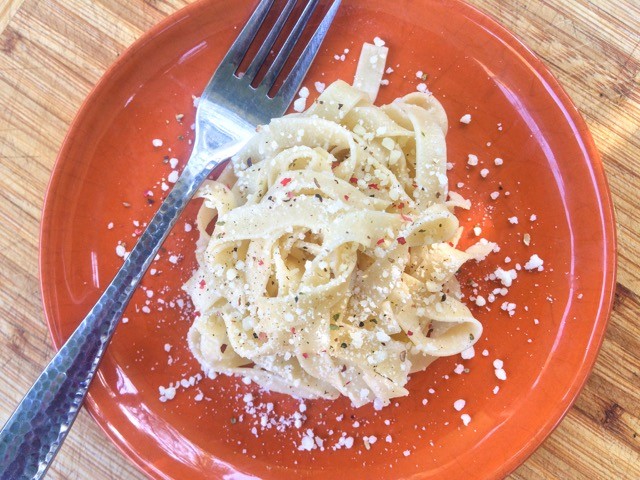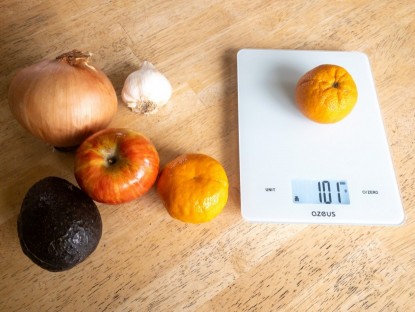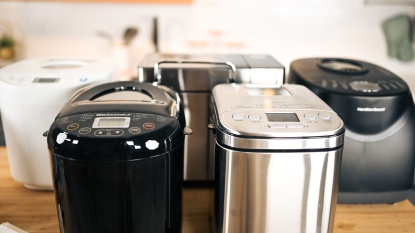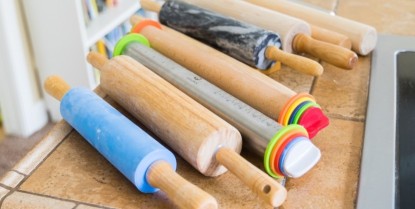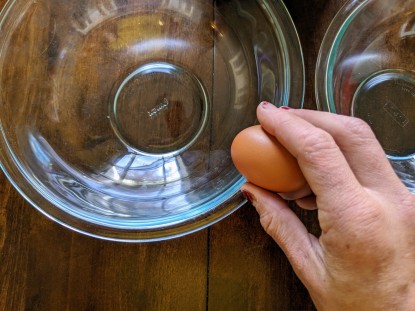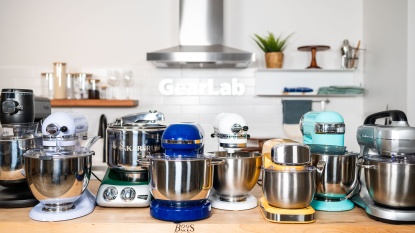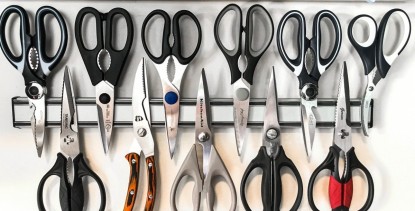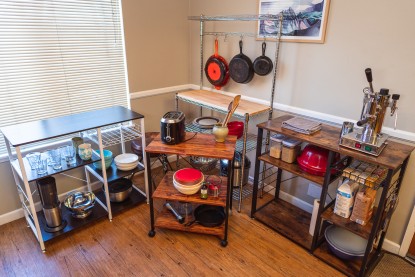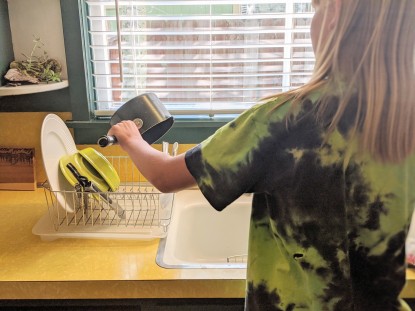We're back in the test kitchen, working hard to find the best pasta makers. After analyzing over 100 products, we purchased the 10 best pasta makers available today. We then whipped up a simple homemade pasta recipe and fed the dough through every single setting to evaluate which ones are worthy of your kitchen. From durability to ease of cleaning, we weighed the metrics and analyzed our results. Whether you're looking to cook up big family-style Italian dinners or perfectly plated single portions, our results can help determine which pasta maker is right for you.
If you love making food from scratch, you've come to the right place. Our kitchen testing team offers a wealth of experience in the kitchen appliance and cookware realm. We can help you find everything from bread machines and rolling pins to our favorite mixers, the top-rated handheld immersion blenders, and even the best pizza ovens.
Our Top Picks
Best Pasta Makers
Type of Machine: Manual | Number of Pasta Shapes: 3
The Marcato Design Atlas 150 is all-around exceptional. Marcato has been producing Italian machines since 1930, and the Atlas 150 is beautifully crafted and runs like a well-oiled machine. The patented rollers are made from durable anodized aluminum, which reduces the number of times you need to feed the dough into the rollers to achieve your desired thickness. We appreciate how easy it is to read the numbers on the thickness dial and love how well the Atlas 150 cuts each noodle into separate strands of even width. As a bonus, you can choose from seven different colors to match your kitchen color scheme.
Our only real complaint with the Atlas 150 is that it doesn't make spaghetti. However, it will make taglioni, which is just slightly wider than spaghetti, and you can purchase an additional spaghetti accessory. Spaghetti aside, the Atlas 150 has impeccable performance any homemade pasta enthusiast can appreciate.
Type of Machine: Manual | Number of Pasta Shapes: 3
The OxGord Hand Crank checks all the boxes at a phenomenal price. We loved how easy this product was to set up and, even more, how easy it was to use. The blades sliced right through the dough with no resistance while producing virtually flawless noodles. Meanwhile, the sturdy clamp fastened the base to the kitchen countertop for optimum stability.
The one defect we noticed was the table clamp had some minor damage where the screw is inserted. However, this does not seem to have any effect on functionality. If you're in the market for a user-friendly machine at an unbeatable price, we recommend the OxGord.
Type of Machine: Manual | Number of Pasta Shapes: 3
For the more serious pasta enthusiast, the Italian-made CucinaPro Titania is a workhorse. The superb craftsmanship and seamless rollers are nicely packaged into one classy-looking machine. Unlike other options, the blade and rollers are all attached as a single unit, while the hardware is highly durable.
The one weakness of the CucinaPro Titania is the thickness settings dial. We found the dial difficult to operate during testing, as it often didn't want to budge. We also noticed there was a bit of machine rock when using the hand crank. That said, we dig this machine and highly recommend this product for anyone who is looking to pump out some quality, hand-crafted pasta.
Type of Machine: Automatic | Number of Pasta Shapes: 3
The Philips Compact was a favorite among our testers for numerous reasons. The machine is fully automatic and pumps out two to three servings of beautifully shaped noodles in a matter of minutes. You can choose between spaghetti, fettuccine, or penne which is a rarity among the products we tested. Additionally, the navigation panel is highly intuitive, and the compact size takes up less counter space than other automatic options.
Of course, like most technological advancements, there are some downsides. Our main criticism of this machine is that cleaning the components can be tedious and time-consuming. The good news is that most of the components are dishwasher safe. The Philips Compact is a stellar buy if you want a machine that does the bulk of the work without the bulky size.
Type of Machine: Automatic | Number of Pasta Shapes: 4
If you're looking to quickly and efficiently whip up a large serving of pasta, take a look at the Philips Pasta Maker Plus. The feature we appreciate most about the Philips is it does all the mixing, kneading, and cranking for you. Fully electric, just simply add your ingredients into the mixing chamber, push a button, and then out comes your pasta. A small plastic pasta cutter is included so you can decide on your desired length. There are also four shaping discs included, so you can choose your pasta shape.
With this pasta maker, your ingredient measurements must be spot on. If not, the machine won't extrude the pasta, and you'll have to start from scratch. It is also bulky and eats up a good amount of countertop real estate — a factor you'll want to keep in mind if you don't have much kitchen space to spare. Although, if space is not an issue, large families can benefit greatly from this electric Philips model.
Type of Machine: Manual | Number of Pasta Shapes: 5
With the CucinaPro Deluxe Set, you don't have to fork over extra money for additional pasta shapes. This pasta maker includes three attachments allowing you to make spaghetti, angel hair, fettuccine, lasagnette, and even ravioli. No matter which attachment you use, we found the base of the machine held solid to the countertop when clamped down.
The primary drawback is that the attachments don't fit securely, causing them to fall off repeatedly during use. Though it didn't test as well as we had hoped, you get a decent bang for your buck if you can use the CucinaPro gingerly.
Type of Machine: Manual | Number of Pasta Shapes: 3
For those new to the world of homemade pasta, the iSiLER Adjustable Pasta Machine is a good place to start. The setup is simple, cleaning is easy, and the price is affordable. While most pasta maker components are hydrophobic, you can wash the rollers and cutters. For the rest of the machine, use a dry cloth to wipe clean.
Despite the easy-to-follow directions, the iSiLER produces less than picture-perfect noodles that stick together and don't come out in even thickness. If you want single strands of noodles, then you'll have to separate them individually by hand. On the other hand, the rollers run smoothly. All things considered, the iSiLER is a decent machine for beginners who want to dabble in homemade pasta making.
Type of Machine: Manual | Number of Pasta Shapes: 3
The Shule Pasta Maker is a simple pasta maker, and that is precisely what we love so much about it. We found the design to be highly streamlined and cut out all the guesswork involved with setup and dismantling. The main highlight of our testing was how smooth the blades sliced right through the noodles. The sturdy table clamp enhanced this experience, keeping the hole contraption locked in solid. The razor-thin roller settings are a bonus for anyone who likes their pasta thinner.
Our primary issue with the Shule is the quality of manufacturing. Tiny pieces of metal flaked off from the rollers and ended up in the dough. We also found the point of attachment for the blade plate and base did not match up well. Although it's not perfect, the Shule is a streamlined machine at a very reasonable price.
Type of Machine: Manual | Number of Pasta Shapes: 1
The Bellemain Large Ravioli is about as straightforward as ravioli making can get. This ravioli maker consists of a plastic mold and a metal frame — that's it. The mold eliminates messy fillings and makes stuffing ravioli a breeze. Meanwhile, the frame gives each square a classically crinkled, uniform shape. The Bellemain is ideal for smaller servings as this pasta maker produces a dozen one-inch ravioli at a time. You can even use water to wash both components, which is a rarity for pasta makers.
Keep in mind that the Bellemain only makes ravioli, so if you desire other pasta shapes, you'll want to go with another option. Also, the metal cutter doesn't slice completely through the dough. That said, the Bellemain is super user-friendly and a good option for taking the fuss out of ravioli making.
Type of Machine: Manual | Number of Pasta Shapes: 5
The Newcreativetop Manual Noodle Press has a unique, portable design that packs well and stores easily. This makes it a good option for pasta parties at your friend's house or gourmet cooking at camp. There are five pasta molds included, and the manufacturer claims you can even use it to squeeze fruit juice, making it a more versatile option.
As much as we love the concept, unfortunately, the Newcreativetop did not follow through in execution. The hand crank was extremely challenging to operate, requiring all our strength just to produce an inch of noodles. The plastic caps on the handle kept falling off, and the cleaning process was just as frustrating.
Why Trust GearLab
We sifted through around 100 products for this review, then narrowed down the list to the top ten, which we purchased at retail price. We then put the products to the test by preparing a simple dough recipe, feeding it through every setting, and cleaning each pasta maker as instructed by the manufacturer. Examining the craftsmanship, features, and components, we used our research to weigh our metrics and rate the products accordingly.
Our primary tester for this review is Carissa Stanz. She brings over a decade of experience in the food and beverage industry to the table and has been testing various product categories for the past four years. As a freelance food writer, she has immersed herself in the culinary world to craft mouthwatering content and informative kitchen product reviews. You can find her obsessively devouring food blogs, cookware reviews, and tips and techniques for the home chef.
Analysis and Test Results
For our tests, we assembled, operated, and cleaned each product. Then we evaluated each one using five different metrics - quality and durability, performance, user-friendliness, ease of cleaning, and features.
Quality and Durability
Right out of the box, the first thing we examined was quality and durability. We looked at the materials used, the construction of components, and overall craftsmanship. We researched the materials and assembled the products to see how well the components fit together. After testing all the settings, we re-inspected each one to determine how well they would stand up to repetitive use.
We found the quality and durability of the Atlas 150 reign supreme. Not only are the patented rollers of the Atlas 150 durable, but they won't leave you with metal flakes on your plate. The Titania added an elegant touch with a classy design and sturdy hardware. Surprisingly, the OxGord was well constructed, given the price. Meanwhile, all three of these machines feature components that fit together seamlessly. Additionally, both the Philips and Philips Compact are well built and likely to last as long as you adhere to the user's manual.
Others like the Shule and iSiLER were almost identical in construction and components but made with slightly different materials and colored handles. With these two less expensive options, you certainly get what you pay for in quality.
Performance
The most important factor of a pasta maker is performance. If it doesn't perform well, you'll wind up with a glob of dough and a gunked-up machine. The better the product was at operating smoothly and producing perfect noodles, the higher it ranked in this metric. For example, we loved the feeling of rolling and cutting the dough with the Atlas 150. The OxGord and Titania offered a similar experience, producing clean-cut noodles of even lengths and separate strands.
While we expected the Philips to be a breeze due to the automatic feature, the performance proved to be a blessing and a curse. Despite following directions, it took us three tries to get the machine to extrude dough. However, when the ingredients were weighed perfectly on a kitchen scale, we had no issues producing visually appealing pasta. There is certainly a learning curve, but once you learn the nuances of the Philips, it performs admirably.
On the other hand, the Philips Compact delivered different results. We got the machine to work properly on the first try. However, we were disappointed by the amount of dough that remained in the mixing chamber once the machine automatically shuts off.
The iSiLER and Shule performed moderately. Each one of these produced modest-looking noodles with slight variations in width, along with some noodles sticking together. There was also the occasional drop of the loose-fitting crank handle when in use. The Bellemain produced uniform ravioli, but the metal cutter merely crimped the dough rather than cutting. While we found the rollers of the CucinaPro ran smoothly, the cutter didn't slice through the dough completely. There were also issues with each of the three attachments, which repeatedly fell off the base while cranking the handle - which also fell out in use.
The Newcreativetop delivered our least favorite performance. This noodle press barely produced any pasta noodles at all. However, what did come out was oddly shaped and, to our palate, not appetizing.
User-Friendliness
User-friendliness was scored on ease of setup and use. The Atlas 150 stood out in this category. From securing the pasta cutting plate to rolling dough through, using the Atlas 150 was about as effortless as a manual pasta maker can get. Right out of the box, the OxGord was also easy to use and very beginner-friendly.
While we loved how smoothly the Titania rollers operated, the thickness settings dial is nothing but frustrating. We found the design incredibly difficult to operate. More often than not, the dial wouldn't budge. When it did, there was resistance. It took us several tries to get the dial to turn, which we believe would make any user unhappy.
Thorough directions can go a long way in how user-friendly a pasta maker can be, and both the Philips Compact and Philips had the most thorough user manual. In addition, we loved the automatic features! Simply push a button, and these electric machines do all the hard work for you. However, with the Philips, we discovered a slight variation in the weight of ingredients means the machine won't extrude pasta, which to us is not very user-friendly.
The Newcreativetop came with instructions on two sheets of paper, which were equally confusing. Luckily, our testers found the setup to be intuitive. However, using the handle proved to be difficult. It took a great deal of strength and energy to twist the handle so the pasta would extrude. Our testers felt most people would rather give up on the process than grow tiresome from trying to make a meal.
Ease of Cleaning
Meticulously picking dough out of a pasta maker is tedious and time-consuming. That's why we included ease of cleaning in our testing process. Before and after testing, we cleaned each one according to the specifications outlined by the manufacturer. If we found we still had a dirty machine after testing, we then used a brush or wooden bamboo skewer to fine-tooth comb all the tiny bits of dried dough from hard-to-reach places.
What we found was the hand-washable Bellemain was the easiest to get squeaky clean. The only way this ravioli maker could have earned a higher score was if it was dishwasher-safe. Next, the iSiLER surprised our testers with how easy it was to wipe clean. We also appreciated we could hand-wash the aluminum alloy components. Most pasta makers have metal components that cannot be washed with water due to rust. This includes the Marcato, OxGord, Titania, and Shule, which were equal in the effort it took to clean.
We found the molds of the Philips Compact, Philips, and Newcreativetop to take a bit more patience as our testers had to poke the dough out bit by bit. The Philips Compact and Philips also had multiple components that had to be disassembled and cleaned thoroughly; this was to be expected with an automatic machine that does all the elbow work for you. We did appreciate that this machine included a tiny brush with a metal poker. While we don't expect this accessory to last, it certainly did the trick.
Features
For features, we first looked at whether or not you could make pasta without buying additional add-ons. We then considered how many different thickness settings and pasta shapes each product included and the overall design. Take the CucinaPro, for instance. This option is the complete package, including six thickness settings and three attachments. You have five different types of pasta to choose from without having to spend more money. The Newcreativetop also makes five different pasta shapes but doesn't allow you to choose the thickness setting.
We liked how the Philips Compact and Philips automatically mixed and kneaded the dough at the push of a button but still allowed us to cut the noodles to our desired length. Both of these offer a penne mold which is not an option with the manual machines. We also loved the base featured a small drawer, so we could store all the shaping discs, cleaning brush, and plastic cutter. Small items can get lost very easily, so this clever feature is much appreciated. Speaking of kitchens, anyone with a small kitchen can appreciate the slimmed-down Philips Compact. This electric machine is about the height and width of one paper towel roll and the length of two. For anyone looking for an automated space-saving option, this is an excellent choice.
Conclusion
Choosing the right pasta maker depends on your cooking needs. Whether you're looking to occasionally whip up a plate of spaghetti or are looking to get serious about perfecting your homemade pasta, our testing can point you in the right direction. While you may have to experiment with dialing in your recipe, we hope our recommendations have satisfied your tastebuds.
—Carissa Stanz


